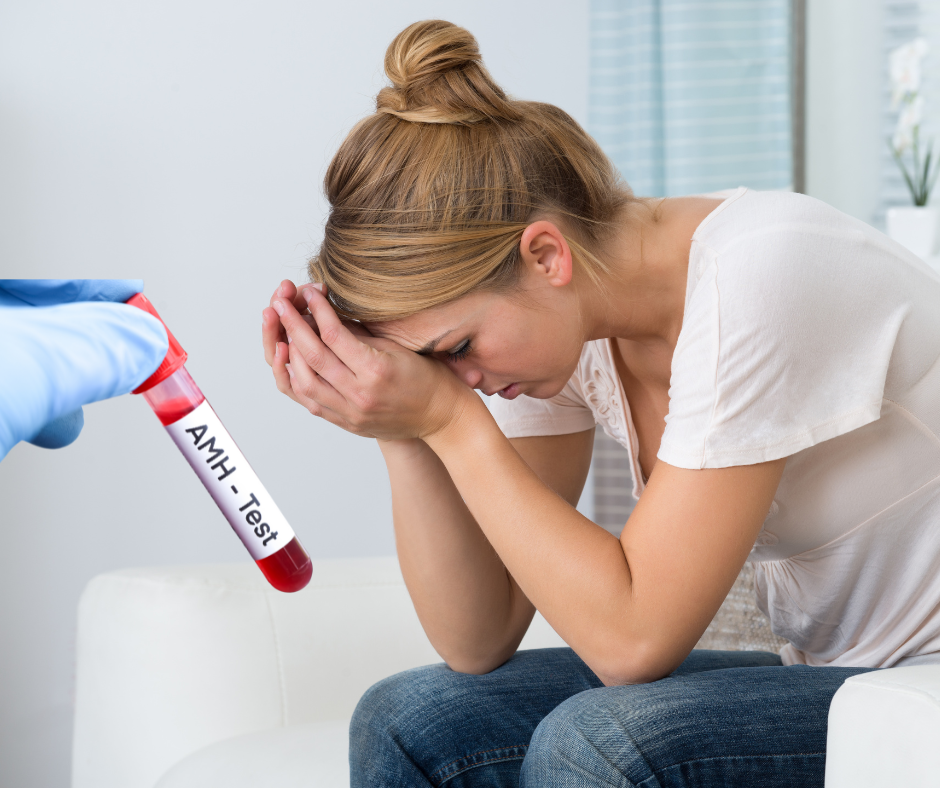If you’ve been told you have low AMH and that IVF is your only option, you’re not alone. This is something I hear all the time in my clinic. And while AMH (Anti-Müllerian Hormone) is a helpful marker for certain things, it is not a definitive measure of your natural fertility.
Let’s break it down.
What is AMH?
AMH, or Anti-Müllerian Hormone, is a hormone produced by the small follicles in your ovaries—the ones that house your immature eggs. It’s often used as a marker to estimate your egg reserve, which refers to how many eggs you might have left.
Fertility clinics use AMH levels to predict how your ovaries might respond to fertility medication during IVF. If your AMH is low, it usually means you may not produce many eggs in response to stimulation – but that’s about IVF outcomes, not your natural ability to conceive.
What AMH Doesn’t Tell You:
Here’s what AMH does not tell you:
- Whether you are ovulating
- Whether your eggs are good quality
- Whether you can get pregnant naturally
- When you will go through menopause
And this is where the misunderstanding happens.
Women are often told that a low AMH number means their fertility is declining rapidly, and that IVF is their only hope. But this simply isn’t true.
Why AMH Doesn’t Predict Natural Conception
The body doesn’t rely on your AMH number to decide whether you can get pregnant. What matters most is:
- Are you ovulating?
- Are your cycles fairly regular?
- Is your reproductive system functioning well overall?
- Is your partner’s health optimum?
Even women with very low or undetectable AMH can and do get pregnant naturally – because the body still selects one dominant follicle each month, and you only need one good egg to conceive.
I have supported many women in my clinic who were told they had no chance because of their AMH. After looking deeper into their overall health and addressing root causes, they went on to conceive without IVF.
What Can Influence AMH Levels?
Your AMH level can be impacted by more than just age and can vary on each reading. Here are some common factors that may lower AMH:
- Chronic stress
- PCOS (which may raise AMH artificially)
- Low vitamin D levels
- Smoking
- Excessive alcohol consumption
- Poor diet (especially processed foods and unhealthy fats)
- Over- or under-exercising
This is why it’s so important to look at AMH in context.
Some women, particularly those of African or Asian descent, naturally have lower AMH levels but are no less fertile. This makes it even more crucial to interpret results carefully and holistically.
So, What Should You Do if You Have Low AMH?
First, don’t panic.
Second, consider working with someone who can look at your fertility from all angles. As a fertility acupuncturist, I combine my training in both traditional and modern medicine to:
- Help you understand why your AMH might be low
- Run or recommend deeper testing for you and your partner (immune, sperm DNA fragmentation, thyroid, vitamin D, blood sugar, hormones)
- Support your body to rebalance naturally
- Reduce stress and improve menstrual health
- Explore your options beyond IVF
Final Thoughts
AMH is a clue, not a conclusion. It’s one piece of your fertility puzzle, not the whole picture.
If you’ve been told IVF is your only chance based on your AMH, take a step back. There may be other options available to you, and many women go on to conceive naturally once they understand and address the root causes of their fertility struggles.
Let’s put AMH to the side, and find your real “why.”
✨ Ready to look deeper? Book an initial fertility assessment with me and we can find out together why you aren’t conceiving.


